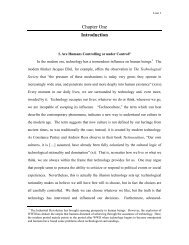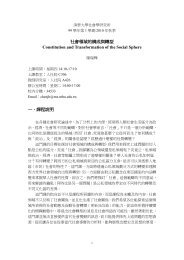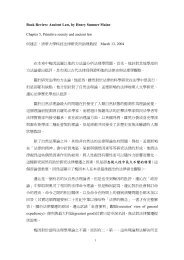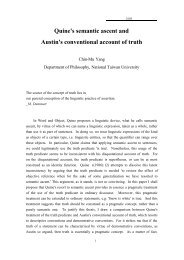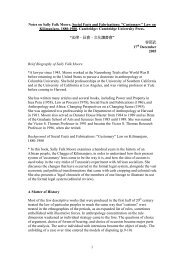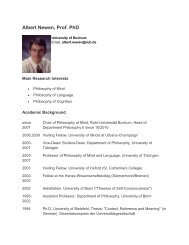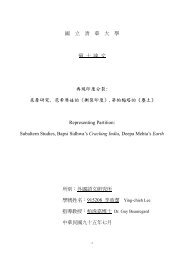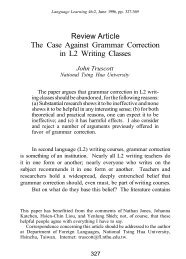Effects of Graded Texts on EFL College Students' Incidental ...
Effects of Graded Texts on EFL College Students' Incidental ...
Effects of Graded Texts on EFL College Students' Incidental ...
You also want an ePaper? Increase the reach of your titles
YUMPU automatically turns print PDFs into web optimized ePapers that Google loves.
learning to occur.<br />
2. Word meaning search activity could result in word acquisiti<strong>on</strong> <str<strong>on</strong>g>of</str<strong>on</strong>g> more quality,<br />
hence, search access should be provided for learners while reading.<br />
3. Gloss, especially computerized gloss is generally effective in bridging the gap<br />
between L2 text and the L2 learners’ limited cultural and lexical knowledge.<br />
Given technical difficulties and learners’ limited mental capacity, however, textual<br />
gloss is regarded as more feasible for computerized extensive reading<br />
envir<strong>on</strong>ments.<br />
2.3. Vocabulary Acquisiti<strong>on</strong> with Word Lists<br />
Preliminary to discussing word list uses in vocabulary teaching, the salient term,<br />
word family, needs to be defined first. A word family is a group <str<strong>on</strong>g>of</str<strong>on</strong>g> words which<br />
have the same morphemic stem. It c<strong>on</strong>sists <str<strong>on</strong>g>of</str<strong>on</strong>g> a headword, its inflected forms such<br />
as plural, past tense, and comparatives; and its closely related derived forms such as<br />
words which are derived by adding affixes –ly, -ness, or un- to the headword (Nati<strong>on</strong>,<br />
2001). In other words, items within a comm<strong>on</strong> word family would have various<br />
surface forms due to inflecti<strong>on</strong>al or derivati<strong>on</strong>al affixati<strong>on</strong>. Word families are <str<strong>on</strong>g>of</str<strong>on</strong>g>ten<br />
used as frequency counting units in word lists.<br />
The significance <str<strong>on</strong>g>of</str<strong>on</strong>g> developing learners’ mental lexic<strong>on</strong> <str<strong>on</strong>g>of</str<strong>on</strong>g> an adequate<br />
vocabulary c<strong>on</strong>sisting <str<strong>on</strong>g>of</str<strong>on</strong>g> high frequent words was repeatedly emphasized by<br />
researchers in sec<strong>on</strong>d language learning (Carter & McCarthy, 1988; Cobb & Horst,<br />
2001; Ky<strong>on</strong>gho & Nati<strong>on</strong>, 1989; Nati<strong>on</strong>, 2001). It was estimated that the most<br />
frequent 1000 word families <str<strong>on</strong>g>of</str<strong>on</strong>g> English, including words such as put, end, come and<br />
difficult, <str<strong>on</strong>g>of</str<strong>on</strong>g>fer a coverage <str<strong>on</strong>g>of</str<strong>on</strong>g> approximately 75% in any text (Cobb & Horst, 2001).<br />
Apparently, the return for learning a core vocabulary c<strong>on</strong>sisting <str<strong>on</strong>g>of</str<strong>on</strong>g> the most frequent<br />
words is significant. Based <strong>on</strong> the assumpti<strong>on</strong> that learning burden could be<br />
10



